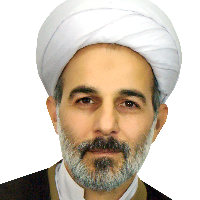A Review of Traditional Foundationalism in Western Philosophy: from Cartesian Certainty to BonJour's Infallibility
Descartes, as a prominent representative of traditional foundationalism, starts from a general methodological doubt in order to achieve certainty and as the first step, he achieves certainty about his own existence whereby he explains knowledge of God and of the world. In his intellectual path, Descartes tries to reduce the credibility of senses and give more credit to intellectual intuitions. He takes clarity and distinctness to be criteria of truth and takes immunity to any doubts as a criterion of certainty. BonJour—a contemporary epistemologist—defends foundationalism but he modifies the Cartesian view in order to save it from objections and provide a new criterion for the infallibility of beliefs. BonJour’s ‘constitutive awareness’ theory seeks to account for infallible beliefs. Constitutive awareness is a level of non-conceptual awareness that can be transformed into a conceptual belief through a descriptive process. BonJour’s view might be compared with the theory of knowledge by presence in Islamic philosophy, though in BonJour’s view, there is fallibility in the beliefs formed from non-conceptual awareness, but it is not rational to care about such fallibility.
-
The Reasons and Methods for the Scientific Authority of the Holy Quran:A Preliminary Review of the Theory of Ontological Proportionality in the Philosophy of Ethics
Mohammadali Mobini *
Journal of Quranic Science Studies, -
The Capacity of Transcendent Wisdom on the Concept of "Body" in Analytical Comparisons with Merleau-Ponty's Thought
Isa Mousazadeh *, Ali Aghaeepour, Mohammadali Mobini
Journal of Contemporary Philosophy,



